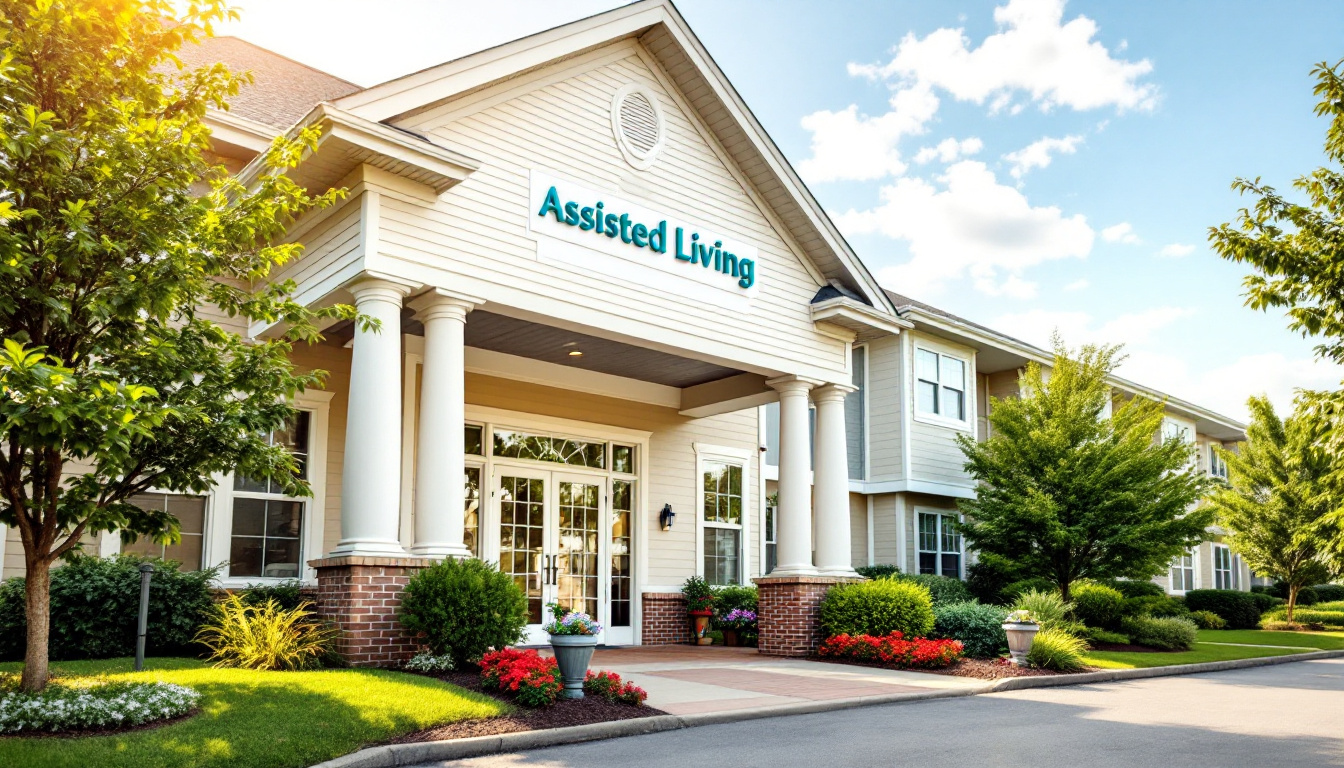The Importance of Personalized Care Plans in Hospice Services
Enhancing End-of-Life Experiences Through Tailored Care

Understanding the Role of Personalized Care in Hospice Settings
Personalized care plans stand at the core of compassionate hospice services, ensuring that each patient's unique needs, values, and preferences guide every aspect of their end-of-life journey. These adaptable strategies involve collaborative efforts among patients, families, and interdisciplinary teams to foster dignified, comfortable, and meaningful experiences. By addressing physical symptoms, emotional well-being, spiritual practices, and cultural values, personalized care enhances overall quality of life, promotes patient autonomy, and respects individual dignity. This article elaborates on the components, development processes, and profound impact of personalized hospice care plans, highlighting their significance in delivering patient-centered end-of-life care.
Defining Personalized Care Plans in Hospice Services
What are personalized care plans in hospice services?
Personalized care plans in hospice services are tailored strategies created through collaboration between patients, their families, and healthcare professionals. These plans address the individual needs, concerns, and goals of each person facing end-of-life challenges. They serve as a roadmap, guiding the care team in managing symptoms, alleviating pain, and supporting emotional and spiritual wellbeing.
Each plan reflects a comprehensive understanding of the patient as a whole person—considering medical conditions, personal preferences, cultural values, and psychological needs. By involving the patient and family in decision-making, these plans ensure care is aligned with what is most important to the individual. This approach fosters dignity, respect, and autonomy, making sure that the patient’s final months or weeks are as comfortable and meaningful as possible.
Implementing personalized care plans enhances symptom control and helps optimize resource use within hospice care. They promote better communication among care team members, ensure consistency in care delivery, and allow for adjustments as the patient's condition evolves. Overall, personalized care plans are fundamental to a patient-centered hospice experience, emphasizing compassion, independence, and tailored support.
Core principles of personalized hospice care
The foundation of personalized hospice care rests on several core principles:
- Holistic approach: Addressing physical, emotional, spiritual, and social needs.
- Respect for patient values: Incorporating individual cultural, religious, and personal preferences.
- Collaborative development: Engaging patients, families, and multidisciplinary teams in creating and updating care plans.
- Flexibility: Allowing changes to care strategies as needs evolve.
- Clear communication: Ensuring all parties understand care goals, interventions, and expectations.
These principles help ensure care is targeted, respectful, and adaptable—creating a supportive environment where patients feel understood and valued.
Benefits of tailored hospice strategies
Personalized hospice care offers numerous advantages:
- Improved comfort: Effective symptom management and pain relief tailored to the individual's needs.
- Enhanced quality of life: Facilitating activities and support that bring joy, meaning, and connection.
- Greater independence: Encouraging participation in daily routines and decision-making.
- Emotional and spiritual support: Helping patients and families cope with grief, anxiety, and spiritual needs.
- Better health outcomes: Accurate medication management and interventions reduce hospital visits and crises.
- Increased satisfaction: Patients and families are more engaged and trusting when care aligns with their preferences.
- Cost efficiency: Properly targeted services avoid unnecessary treatments and optimize resource use.
By integrating these personalized strategies, hospice providers can significantly improve end-of-life experiences, ensuring they are dignified, peaceful, and aligned with individual wishes.
Impact on Quality, Safety, and Well-Being
 Personalized care plans are instrumental in elevating the quality of hospice care by providing tailored interventions that address each patient's unique needs and preferences. These plans incorporate comprehensive assessments—such as annual wellness visits and health risk assessments—that help detect health issues early and facilitate proactive management.
Personalized care plans are instrumental in elevating the quality of hospice care by providing tailored interventions that address each patient's unique needs and preferences. These plans incorporate comprehensive assessments—such as annual wellness visits and health risk assessments—that help detect health issues early and facilitate proactive management.
By considering genetic information, medical history, lifestyle factors, and social determinants of health, personalized care strategies enable healthcare providers to design more effective, targeted treatments. This individualized approach leads to better clinical outcomes, such as improved symptom control and reduced hospital readmissions.
Effective coordination across multidisciplinary teams—including physicians, nurses, social workers, and family caregivers—is essential. Personalized plans foster seamless communication and collaboration, ensuring safety and minimizing risks like medication errors or overlooked symptoms.
Moreover, involving patients actively in their care fosters greater engagement and empowerment, which enhances their overall well-being. Patients who understand their care plans are more likely to participate in decision-making and adhere to recommended treatments.
Programs such as Chronic Care Management exemplify how holistic, continuous care centered on individual needs can sustain health and prevent crises. When integrated with regular reviews and updates, personalized care plans adapt to changing health conditions, ensuring ongoing safety and comfort.
In sum, personalized hospice care strategies not only improve health outcomes but also provide a safer, more supportive environment for patients during their final stages of life.
Significance of Individualized Approaches

Why is personalized hospice care so important?
Personalized hospice care plays a crucial role in ensuring that each patient receives treatment that aligns with their unique needs, preferences, and values. It recognizes that no two patients are alike, especially when approaching the end of life. Tailoring care involves conducting thorough assessments to understand the patient's physical symptoms, emotional state, cultural background, spiritual beliefs, and personal wishes.
Interdisciplinary teams—including doctors, nurses, social workers, chaplains, and caregivers—collaborate to develop a flexible care plan. This plan is not static; it evolves with the patient's changing conditions, ensuring ongoing comfort and dignity.
The main goal is to improve quality of life by effectively managing pain and symptoms, offering emotional support, and respecting individual choices about treatment settings and spiritual or cultural practices. This person-centered approach fosters trust, enhances emotional well-being, and creates a meaningful end-of-life experience.
How does addressing diverse patient needs enhance care?
Every patient brings their own story, beliefs, and challenges. Personalizing care allows providers to accommodate these differences. For example, respecting cultural or religious practices can help patients find peace and acceptance. Emotional support tailored to individual fears, anxieties, and hopes alleviates stress for both patients and families.
By considering social, psychological, spiritual, and physical needs, personalized care plans create a holistic approach. They help patients stay connected with loved ones, maintain independence where possible, and find comfort in familiar routines and preferences.
How do clinical and personal preferences balance in hospice care?
Balancing medical interventions with personal choices is fundamental. While symptom management and comfort are priorities, respecting a patient's treatment preferences and life philosophies is equally vital. For instance, some patients may decline invasive procedures or prefer spiritual rituals over certain medications.
Effective communication is essential to align care goals with patient wishes. Care plans are developed collaboratively, ensuring clarity and consent. This mutual understanding promotes dignity, fosters trust, and ensures each patient’s end-of-life journey is as meaningful and personalized as possible.
Ultimately, individualized hospice care respects the diversity of patient backgrounds and upholds their right to control their final days, leading to greater satisfaction and a more compassionate care experience.
Development and Components of Effective Personalized Plans

What are the key components and development processes of effective personalized hospice care plans?
Effective personalized hospice care plans are essential tools that guide tailored care, ensuring that each patient's unique needs and preferences are prioritized. The foundation of a good plan starts with a thorough assessment conducted by a multidisciplinary team (IDG) comprising healthcare professionals like doctors, nurses, social workers, chaplains, and therapists. This team collaborates to understand the patient’s holistic needs—physical, emotional, social, and spiritual—and incorporates the patient’s and family’s goals and values into the planning process.
The development process involves several key steps. First, comprehensive assessments gather baseline data on the patient’s medical conditions, symptom severity, emotional state, cultural background, and personal wishes. This information helps in identifying specific challenges and priorities.
Next, the team jointly creates a detailed plan, clearly documenting all interventions, medication management, supportive services, and educational components for caregivers. This shared document acts as a roadmap for delivering consistent care aligned with the patient’s wishes.
Regular reviews are integral to maintaining the plan's relevance. Typically, the care plan is reassessed and updated at least every 15 days or when significant changes occur in the patient’s condition. These updates adjust interventions, update goals, and incorporate new health developments, ensuring the plan remains flexible and responsive.
Implementing such a plan is facilitated by modern electronic medical record systems, which enable seamless documentation, sharing among team members, and real-time revisions. This technology ensures coordinated, patient-centered hospice care that adapts to evolving needs.
In summary, effective personalized hospice care plans depend on thorough initial assessments, multidisciplinary collaboration, detailed documentation, and regular updates—setting the stage for care that truly respects each patient’s individual journey and enhances their quality of life.
Methodologies for Crafting End-of-Life Care Plans

How are personalized end-of-life care plans created and what methodologies are involved?
Developing personalized end-of-life care plans is a careful and collaborative process that prioritizes the individual needs, preferences, and cultural beliefs of each patient. It begins with comprehensive assessments, where healthcare professionals explore the patient’s values, spiritual beliefs, and cultural practices. This ensures that the care plan aligns with what matters most to the patient.
Structured steps are followed, including preparation, where initial data collection and goal setting occur. Action planning involves detailing specific interventions for symptom management, emotional support, and spiritual care. This is documented thoroughly to serve as a clear guide for the entire care team.
Assessment tools and guidelines play a crucial role in this process. For example, the Swedish Palliative Care Guide (S-PCG) offers structured tools for evaluating symptoms and needs. These tools contribute to understanding the patient’s physical, emotional, and social challenges, forming the basis for tailored interventions.
Shared decision-making between patients, families, and healthcare providers is at the heart of care plan development. This approach ensures that care goals are transparent, realistic, and aligned with the patient’s wishes.
Formal documentation includes advance directives, Do Not Resuscitate (DNR) orders, and customized care plans, which ensure that patient preferences are respected and legally protected. Proper documentation promotes continuity of care and facilitates communication among interdisciplinary teams.
Methodologies also involve iterative refinement, with pilot testing and feedback loops to improve the clarity, communication, and effectiveness of care plans. For instance, tools like the Personalised Care Plan for the Last Days of Life (PCP) are tested and adjusted to enhance their usability and comprehensiveness.
Overall, adopting these methodologies ensures that end-of-life care is personalized, respectful, and holistic. This enhances the quality of life, preserves dignity, and aligns care delivery with individual values and cultural contexts.
Positive Outcomes of Personalized Care in Hospice

What is the impact of personalized care on patient satisfaction and health outcomes in hospice settings?
Personalized care in hospice has a profound effect on both patient satisfaction and overall health results. When hospice services are tailored to meet individual needs, preferences, and values, patients tend to experience better symptom control and heightened comfort.
This customized approach includes specialized therapies such as respiratory, physical, occupational, and speech therapies, aligning treatment to each person's unique medical condition. It also involves careful care coordination by interdisciplinary teams—including doctors, nurses, social workers, chaplains, and family members—to ensure seamless, responsive care.
Research consistently links personalized hospice care with improvements like effective pain relief, fewer hospital or ICU admissions near end-of-life, and increased feelings of trust and emotional support. These effects are often reinforced through early engagement and continuous feedback, which help ensure that care plans reflect the patient's wishes.
Moreover, tailored plans foster a sense of security and dignity, enhancing quality of life during this sensitive phase. By addressing physical discomfort, emotional needs, and personal values, personalized hospice care creates a more meaningful, respectful experience for patients and their families. Overall, this patient-centered approach results in higher satisfaction ratings, better symptom management, and improved clinical outcomes at the end of life.
Preserving Dignity and Individuality through Personalized Plans
Why are personalized care plans important for maintaining dignity and individualization in hospice services?
Personalized care plans are vital in hospice settings because they prioritize the unique needs, preferences, and values of each patient. This tailored approach helps ensure that patients retain their dignity by respecting their autonomy and making them active participants in their own care.
These plans encompass a wide range of aspects—physical, emotional, spiritual, and social—to create a holistic support system. When care teams develop and implement such individualized plans, they promote comfort, respect, and a sense of control for patients facing end-of-life issues.
Involving patients and their families in designing and regularly reviewing care plans reinforces the process of joint decision-making. This ongoing engagement helps align care with patient wishes, fostering trust and ensuring that care remains relevant and respectful as health conditions evolve.
Flexibility is a core feature of personalized plans. As patients' needs and circumstances change, care teams can adapt interventions accordingly. This dynamic approach minimizes discomfort and maintains a focus on the patient's dignity at every stage.
Overall, personalized care plans cultivate a compassionate environment that recognizes each individual's distinct story and preferences. By doing so, they uphold personal dignity and allow patients to approach the end of life with respect, comfort, and a sense of agency.
The Impact of Personalization on Hospice Care Quality and Compassion
Personalized care plans are indispensable to delivering hospice services that are respectful, effective, and centered around the individual. They foster trust, promote dignity, and ensure that care is aligned with each patient's unique story, needs, and wishes. As hospice care continues to evolve with advances in technology and holistic approaches, the significance of tailored strategies becomes even more evident. Personalized care not only improves clinical outcomes and satisfaction but also enriches the emotional and spiritual quality of end-of-life experiences. Embracing and refining personalized care planning is essential for caregivers and healthcare systems committed to compassionate, respectful, and holistic hospice services that honor the humanity of each patient in their final days.
References
- The Importance of Personalized Care in Hospice Services
- Hospice Personalized Care Plans Based On Condition
- Customized Care at Home: The Benefits of Personalized Care Plans
- VITAS Patient Centered Care: 4 Levels of Personalized Care
- 10 Reasons Personalized Care Plans Matter - Salus Homecare San ...
- [PDF] MLN9895410 Creating An Effective Hospice Plan of Care - CMS
- Customized Plan of Care | MJHS Health System





































































































